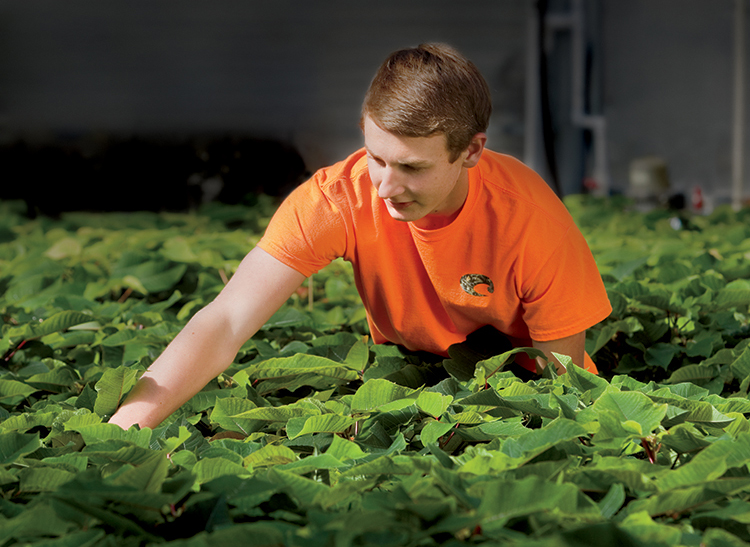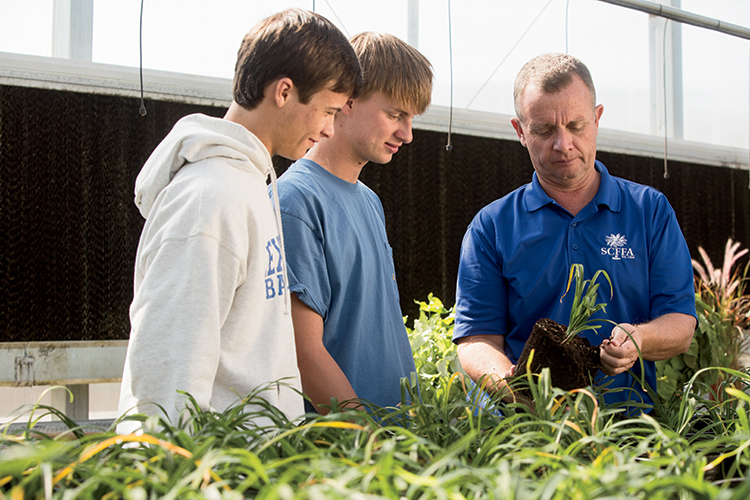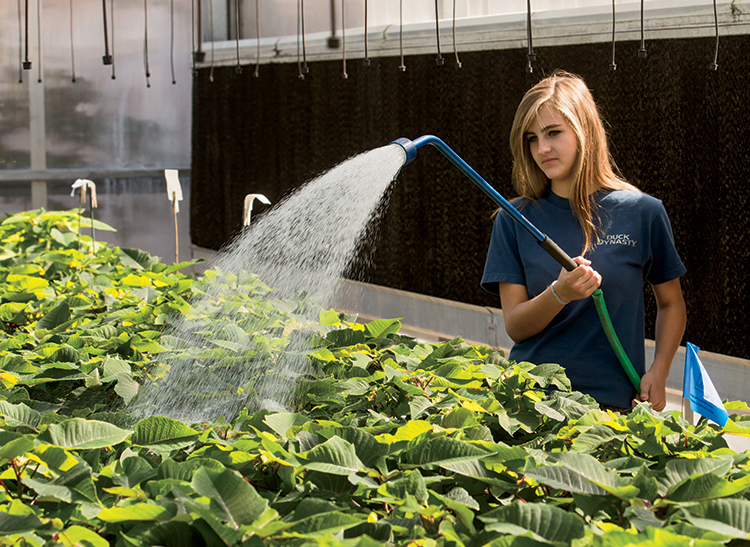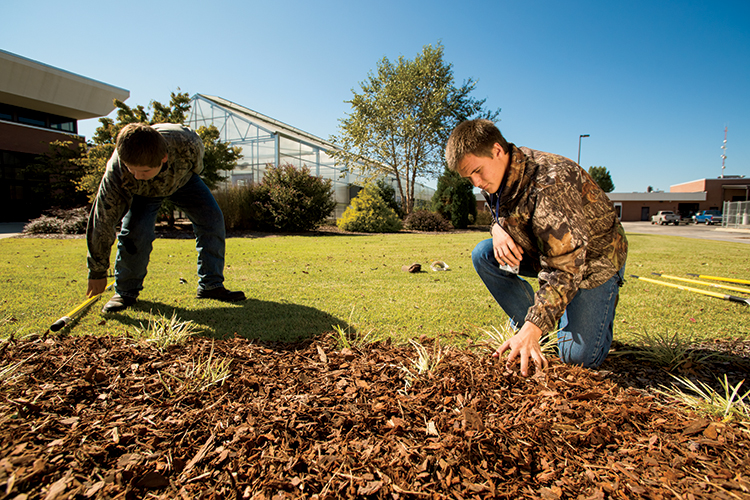Home > South Carolina > South Carolina Ag Education > Cultivating Leaders in South Carolina
Cultivating Leaders in South Carolina

Agriculture means big business for South Carolina. And big business means jobs. Agricultural educators in South Carolina prepare students every day to fill those jobs and equip them with the skills needed to succeed in their field.
More than 10,000 South Carolina middle and high school students gain these skills in 110 agriculture programs around the state. They explore areas such as forestry and natural resources, agriculture mechanics, horticulture, animal science, biosystems technology, aquaculture and more.
FFA completes the integrated agricultural education model and offers students the chance to be leaders on the local and national level.

“FFA gives students the opportunity to practice what they learn in the classroom through competitive events,” says Tommy Harmon, agricultural education instructor at Lexington Technology Center. “It gives them the opportunity to develop leadership skills and think on their feet, by speaking at meetings, career fairs and even in civic organizations. It is very important for not only career skills, but leadership skills as well.”
Harmon has taught agriculture in South Carolina for more than 30 years and recognizes the importance of cultivating new leaders for this growing business sector.
“There are diverse career opportunities in agriculture, not just farming; one-third of the jobs in our workforce are related to agriculture,” he says.

South Carolina agricultural education is attracting more students from outside the rural landscape. Students from suburban and urban areas, many with no agricultural background, find their niche in agriculture classes.
“In the last 10-15 years, agricultural education has been growing in South Carolina,” says Kevin Sox, chair of the South Carolina FFA Board of Directors. “The science of agriculture is attracting students who aren’t necessarily interested in farming. Students have the opportunity to explore careers in biotechnology and alternative energies and learn more about the challenges of providing food, fuel and fiber for a growing world population.”
South Carolina universities show their support for the agriculture industry, as nearly every college in the state offers correspondent degrees.
Recently, the University of South Carolina added a master’s program in biotechnology, which prepares students for a career in the rapidly growing biotech sector. Other degree focuses include plant sciences and alternative energies.

Clemson University, a land-grant university, remains true to its agricultural roots and currently offers 16 different majors in the College of Agriculture, Forestry and Life Sciences. Several of these majors boast 100 percent job placement – quite a feat in today’s economy.
“Agriculture companies recognize the generational turnover about to occur and are assessing the composition of their workforce. Because of this turnover, there are a high number of jobs available in agriculture segments,” says Dr. Thomas Scott, dean of the College of Agriculture, Forestry and Life Sciences.
Scott recognizes the importance of FFA in high school for getting kids interested in the agricultural sector.
“High school students who are exposed to these career paths through agricultural education and FFA see the tremendous possibilities in this career field. We need more students like them to look at a college career, think beyond biology and more about making good career choices. There are endless possibilities, and this is an exciting time to have people being educated in agriculture.”



